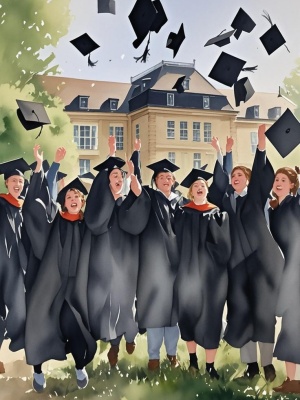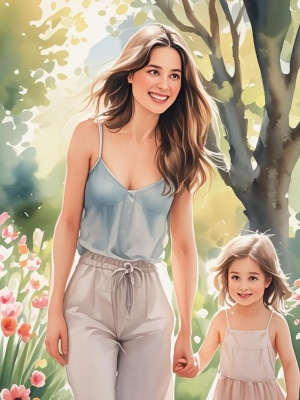Exploring the Diverse Styles of Watercolor Painting
Introduction to Watercolor Painting Styles
Watercolor painting is a versatile and expressive medium that has captivated artists for centuries. The unique transparency and fluidity of watercolors allow for a wide range of styles, from loose and impressionistic to highly detailed and realistic. In this article, we'll explore the most prominent watercolor painting styles, their characteristics, and how artists can master each technique. Whether you're a beginner looking to experiment or an experienced painter seeking inspiration, understanding these styles will enhance your artistic journey.
For those interested in digital alternatives to traditional watercolor techniques, check out our AI Painting Guide which explores how technology is transforming artistic expression.
Traditional Watercolor Techniques
Wet-on-Wet Technique
The wet-on-wet technique is one of the most fundamental watercolor styles, where paint is applied to a wet surface. This creates soft, diffused edges and beautiful color blends. Artists often use this method for creating atmospheric effects in landscapes or abstract backgrounds.
- Creates organic, flowing color transitions
- Ideal for skies, water reflections, and soft backgrounds
- Requires careful timing and paper selection
Dry Brush Technique
In contrast to wet-on-wet, the dry brush technique uses minimal water, creating textured, scratchy effects. This style works particularly well for depicting rough surfaces like tree bark, rocks, or architectural details.
According to the American Watercolor Society, this technique gained popularity among 20th century illustrators for its ability to create fine details.
Contemporary Watercolor Styles
Botanical Illustration

Botanical watercolor painting combines scientific accuracy with artistic beauty. This style requires precise brushwork and careful observation of plant structures. Many contemporary artists are reviving this traditional style with modern compositions.
- Start with detailed pencil sketches
- Build colors in transparent layers
- Maintain accurate proportions and details
Urban Sketching with Watercolors

Urban sketching has become a global movement, with watercolor being the preferred medium for many artists. This style captures the energy of city life through quick, spontaneous brushstrokes and vibrant colors.
For inspiration on capturing different scenes, visit our landscape scenes gallery featuring various artistic interpretations of natural and urban environments.
Experimental Watercolor Approaches
Abstract Watercolor
Abstract watercolor painting pushes the boundaries of traditional techniques, focusing on color relationships, textures, and emotional expression rather than representational accuracy. Artists often combine unconventional tools with watercolors to create unique effects.
Mixed Media Watercolor
Many contemporary artists combine watercolors with other media like ink, gouache, or even digital elements. This hybrid approach allows for greater creative freedom and textural variety.
- Ink and watercolor combinations create bold contrasts
- Collage elements add dimension to watercolor paintings
- Digital enhancements can expand creative possibilities
Choosing the Right Watercolor Style
Selecting a watercolor style depends on your artistic goals, subject matter, and personal preferences. Beginners might want to experiment with different techniques before specializing. Consider these factors:
- Your desired level of realism or abstraction
- The time you can dedicate to each painting
- The emotional impact you want to create
- Practical considerations like drying times and materials
The Royal Watercolour Society recommends keeping a sketchbook to practice different styles before committing to larger works.
Conclusion: The Enduring Appeal of Watercolor Styles
From traditional techniques to modern innovations, watercolor painting offers endless possibilities for artistic expression. Each style has its unique challenges and rewards, making watercolor one of the most versatile and engaging mediums. Whether you prefer the precision of botanical illustration or the freedom of abstract washes, there's a watercolor style to match every artistic vision.
As you explore these different approaches, remember that many artists combine multiple styles in their work. For more artistic inspiration, visit our gallery page showcasing various watercolor techniques and styles.